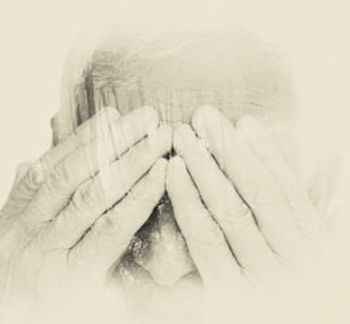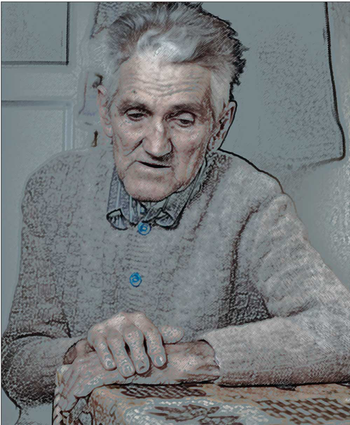
What is the potential role of rTMS in treating neuropsychiatric symptoms of neurological disease?

What is the potential role of rTMS in treating neuropsychiatric symptoms of neurological disease?

The patient did not just scream for more medication-he literally rolled on the floor, ranting and raving and demanding higher doses. Some may write him off as an "addict," but this case reaffirms the value of studying medicine before practicing psychiatry or psychopharmacology.

In order for older patients to derive greater enjoyment from their later years, clinicians must take special care during evaluation, treatment, and follow up when working with this growing population.

Therapeutic lying, a concept that is currently seeping into the medical literature, is the practice of deliberately deceiving patients for reasons considered in their best interest.

This review focuses on post-stroke depression, apathy, anxiety, and PTSD, because these disorders occur and have been studied most frequently.

The potential of TMS as a treatment for cognitive disorders, fatigue, pain, and other manifestations of brain disease is discussed, as is the encouraging prospect for neuropsychiatric management of many patients.

Elderly patients represent approximately what percentage of the population with bipolar disorder? Take the quiz and learn more.

This article provides a practical framework that can guide consultation-liaison psychiatrists through solving problems of capacity and informed consent.

The need to integrate psychiatric treatment with somatic care puts psychosomatic medicine in a unique position to focus on older patients who would not otherwise seek specialized treatment.

There are a considerable number of aging patients with an eating disorder who have only partial symptom remission or who remain ill for many decades. Here is a case in point.

Psychiatrists should be playing a key role in end-of-life decisions as well as, not coincidentally, in pain management.

With more and more baby boomers turning 65 every day, there will be an enormous increase in elderly patients needing psychiatric care over the next 20 years.

This article summarizes 5 cases from consultation services at several teaching hospitals. These challenging cases illustrate several points for the consultation/liaison psychiatrist to consider in caring for elderly hospitalized patients.

An in-depth look into the behavioral and psychological symptoms of dementia.

DSM-5 criteria for hoarding disorder necessitate that the hoarding behaviors cause clinically significant impairment in the patient’s ability to function.

Clinicians will likely encounter increasing numbers of older adults with late-life depression. Advances in our understanding of the neurobiology can help inform diagnosis and prognosis.

Of all the transferences that emerge in the consultation room, sexual feelings are by far the least talked about and the most challenging for therapists to manage. This author talks about erotic transferences here.

The number of persons affected by elder mistreatment and self-neglect is growing-with consequent increases in morbidity and premature mortality.

This case stresses the importance of identifying cultural issues that arise in mental health clinical encounters.

The SSRIs, although principally targeting serotonin transporter, are complex drugs that might work on other neurotransmitter and receptor systems. It is likely worthwhile to look at the effects of other monoamine and neuropeptide systems on the enzymatic machinery cleaving the amyloid precursor protein.

Is there something in young blood that holds the key to preventing or reversing cognitive decline and/or dementia associated with aging? The answer to that question is the subject of intense recent research. Details here.

Vascular surgeons, internists, and neurologists all exist-but why aren’t there any vascular psychiatrists? There certainly is a need.

Severe alcohol dependence and frequent relapses in this patient prompts his son to produce a durable power of attorney for health care. He demands that the physicians declare his father to lack decision-making capacity. More in this ethics case report.

Mood disorders in older adults are neither inevitable nor particularly resistant to treatment. With attention to the special needs of older patients during evaluation, treatment, and follow up, clinicians can help many patients derive greater enjoyment from their later years.

With regard to visual adverse effects in patients who take psychotropic medications, new is not always better or safer. More in this Brief Communication.